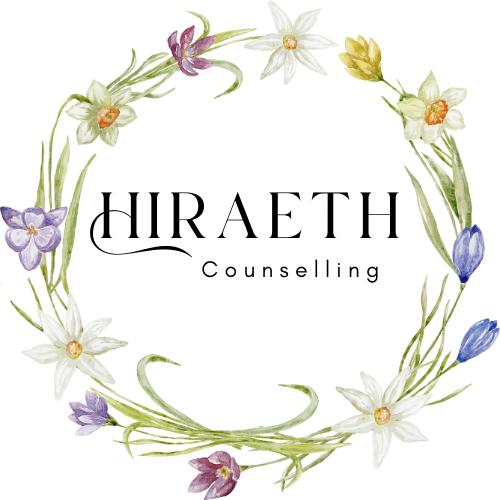Have you ever had a deep sense about something, a person, a place, a situation, and yet couldn’t explain why? A feeling that something’s off, or that this feels like home, without a clear reason?
Psychoanalyst Christopher Bollas has a name for this: The Unthought Known.
What is The Unthought Known?
The unthought known isn’t unconscious in the classic Freudian sense. It’s not buried, repressed, or hidden. Instead, it’s pre-verbal, embodied knowing. It’s the part of yourself that already knows, but hasn’t been put into words. Gabor describes this sense as “innate knowing”. The human capacity for intuition and wisdom is often suppressed by trauma and stress. Matè suggests that healing trauma and cultivating authenticity enables this wisdom to emerge. When we lose touch with this instinctual wisdom, we tend to rely on external validation from others to inform our sense of self-worth. These are the instincts, the subtle impressions, the “gut truths” you carry in your body from early life experiences, relationships, formative moments, and interactions that shaped you before you had the words to make sense of them.
It might surface as:
- A pull toward or away from certain places or people
- A subtle aversion you can’t quite explain
- A recurring dream or image
- A resonance with music, art, or nature
In other words, it’s knowing without thinking.
The Tacit Dimension
This concept connects closely with what philosophers and cognitive scientists call the tacit dimension. Tacit knowledge is the knowledge we act on but cannot fully explain; it is the “know-how” embedded in our bodies, habits, and intuitions.
Think of riding a bike, reading a room, or sensing danger before it happens. You know it, but you can’t put it fully into words. The unthought known is like this, a felt, living knowing that shapes your choices, relationships, and perceptions without your conscious reasoning.
It matters because sometimes our lives are spent trying to make sense of ourselves through analysis, explanation, or reasoning, when in fact, some truths are already known deep inside. We don’t need to be a body language expert to recognise that sometimes people say one thing, but it doesn’t match what they convey through non-verbal means. Often, we discount our inner knowing; it’s important to self-validate, attuning to what we experience that is beyond what is explicitly stated.
Why This Might Matter to You
So much of our energy goes into figuring things out: Why did that relationship fail? Why do I feel out of place? Why do I keep repeating patterns?
Bollas’ concept invites a different question:
“What if part of me already knows and doesn’t need to explain?” It is crucial to develop critical thinking, self-reflection, and introspection; equally important is trusting the tacit knowing. The unthought known isn’t meant to be decoded or dissected. It’s meant to be felt, witnessed, and honoured. Pay attention to it, let it surface slowly, and notice what it brings.
A Spiritual Parallel: Apophatic Mysticism
Interestingly, this idea has a parallel in spirituality, what’s called apophatic mysticism. Found in contemplative Christianity, Sufism, and certain Buddhist traditions, it focuses on knowing the Divine, or the deepest truth, through what cannot be expressed. Apophatic practice is not about reciting prayers or asking for guidance. It’s about resting in the silence beneath thought, the stillness beyond identity. It’s asking:
“What am I when I stop needing to be someone?”
You don’t have to believe in God for this to resonate with you. It’s a practice of stepping into the vastness beyond story, beyond the labels we carry, even painful ones like ‘I’m unlovable.’ The effect is profound: it regulates the nervous system, cultivates inner calm, and offers a sense of being held by existence itself. Imagine sinking into warm water after holding yourself tight for years; that’s the essence of this practice. In human terms, it’s a great risk to find out who you are without the need for outside validation, reflection. Rogerian therapy calls this the ‘internal locus of valuation’. Western society, schools, institutions, and dysfunctional family systems often suppress the development of reliance on our own instincts, beliefs and feelings to make decisions and evaluate situations. When we can’t be authentic and operate from an ‘internal locus of control, ’ we experience psychological discomfort.
How to Connect With Your Unthought Known
If this resonates with you, try this simple practice:
- Find a quiet space. Sit comfortably. Place one hand on your heart and the other on your belly.
- Let your breath slow. Feel the boundary between your body and the world.
- Ask inwardly: “What do I already know, but have never said aloud?”
- Don’t force an answer. Just settle, wait, and listen.
Responses may come in the form of warmth, imagery, tears, laughter, or a quiet knowing. You don’t need to interpret them. This is about receiving and listening to that inner world, not solving.
The unthought known and its tacit dimension reminds us that we are already more than our stories, our explanations, and even our suffering. Some truths live in us quietly, waiting to be acknowledged, felt, and honoured. Listening to this inner knowing is an act of self-love and care. Trust in your body, your instincts, and the wisdom you carry from before words existed. It’s a gentle, profound way of saying: “I am already whole. I just need to remember it.”
Enabling us to accept what is, rather than grieve what is not. We can wrestle with the non-finite nature of the grief that we carry, knowing something to be true, but unwilling to accept it. For example, we can spend a lifetime chasing something, love, approval, acceptance from an outside source, or we can go within and be what we need for ourselves and others.







